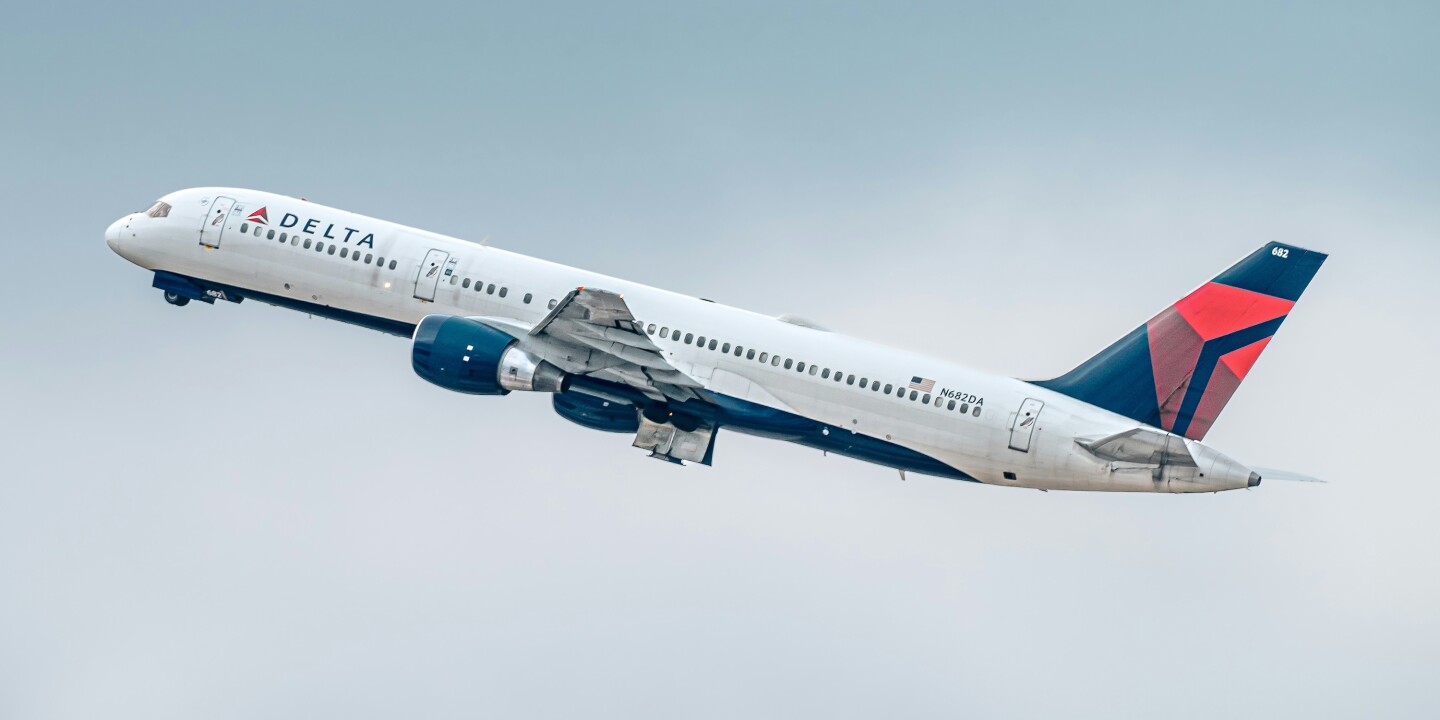Delta Air Lines recently attracted criticism for revealing that it uses artificial intelligence (AI) to price several airfares.
During the revenue call in early July, airline president Glen Hauenstein said Delta is currently priced around 3% of domestic flights using generated AI technology, with the aim of increasing by up to 20% by the end of 2025.
“We like what we see,” Hauenstein said of the results of Delta’s Large Market Model (LMM) pricing tool, provided by generated AI pricing and inventory management company Fetcherr. “We keep rolling it out, but we’ll take the time to make sure the rolling out is successful.”
Airfare pricing is always dynamic and has traditionally been established by data analysts based on complex factors such as demand, jet fuel rates, and route costs. It helps you crunch large datasets on consumer searches, competitor pricing, and weather patterns using AI.
However, the consumer impact could appear to be surge pricing from RideShare Services Uber or Lyft. In fact, three senators recently expressed concern about the financial impact on travelers.
“Delta’s … pricing practices not only present data privacy concerns, but perhaps means rising fare prices.
Certainly there are privacy issues beyond pricing concerns. “Survey pricing has been shown to utilize a wide range of personal information obtained through a variety of third-party channels, including passenger purchase history, web browsing behavior, global media activity, biometric data and financial status data,” the letter states.
A Delta spokesperson told AFAR that Delta has never set individual pricing based on personal information or anything like that.
“Delta may not use your name when offering ticket prices, but (AI) estimates your willingness to pay by almost certainly factoring in device type, search behavior, location and past booking patterns,” said Wyatt Mayham, an AI system expert and co-founder of Northwest AI Consulting.
He said, “The FTC calls this monitoring pricing. It’s not legally personal, but deeply personalized.”
Travelers should expect Warder Price Swings with AI set airfares, according to Tom Randklev, product director at CellPoint Digital, a payment orchestration company that supports airlines around the world.
“(AI prices) could benefit bargain hunters using flex-dating, clear cookies, or meta-search sites, but it will definitely have a negative impact on business travelers who have less time flexibility,” says Randklev.
Delta is not Fetchel’s only airline client. The technology company also lists Virgin Atlantic, WestJet, Azul and Viva Erobus on its product pages with the catchphrase “trusted by the world’s leading airlines.” So, Delta is currently in the spotlight on AI-impacted pricing, but there is no guarantee that other airlines have not yet implemented similar measures.
“Unlike traditional pricing, we don’t know if passengers are getting fair deals or targeting,” said Philip Carls, a pricing expert who leads global teams at Amazon, American Express and Walmart. “AI doesn’t need to know race or age to discriminate. You can guess a lot based on your postal code, income level, or browsing history. Proof of bias is almost impossible.”
LMMS helps airlines identify people who pay a higher price than paying a higher price, and so are the ultimately known people who earn the final income, and those who earn the higher income (sometimes known in the industry as “paid passengers.” But it’s not all fate and darkness for everyone.
“Prices may be low for some customers,” Carls said. “Budget-conscious travelers who rarely fly may see discounted rates to encourage bookings. Frequent flyers can get exclusive discounts and upgrades, and some customers can benefit from dynamic transactions when they use their data to provide last-minute discounts.”
American Airlines is strongly opposed to Delta’s AI stance, with CEO Robert Isom using the US second-quarter revenue call on July 24 to criticize the Delta move.
“Consumers need to know that they can trust Americans,” Isom said in response to a question about whether Americans would copy deltas when pricing airfares using AI. “I don’t think that’s appropriate. Certainly from Americans, that’s not what we do.”
But considering that Americans, united, Delta all frowned in June, the American attitude should be taken with grains of salt, given that solo travelers raised their brows when they pointed out that they cited higher fares than shoppers who buy tickets for two or more passengers on the exact same route and date. So, while Americans don’t use AI to establish pricing for passengers, some consumers can pay more based on data obtained by airlines.
Currently, US and European regulations allow airlines to use dynamic pricing technology, but Randklev hopes lawmakers will look into it in the coming years.
“A rapid pick-up of AI-driven individual pricing will eventually attract the attention of lawmakers, bringing transparency delegation and regulatory rulemaking,” Randklev said. Carls also warned that a lawsuit would likely arise if travelers felt unfairly targeted.
In the meantime, to maximize protection for yourself, Mayham proposed to make digital fingerprints as vague as possible, in order to intercept the LMM’s ability to identify “willing to pay” in the next strategy.
- Search for flights in incognito mode
- Clear browser cookies
- Please log out of your airline account until you are ready to book
- Use a VPN to mask the location
- Compare prices across devices
- Try out different travel dates and airports
“None of these (methods) are perfect, but it makes it difficult for AI to tag you as someone who is willing to pay the best dollars,” Mayham said.







